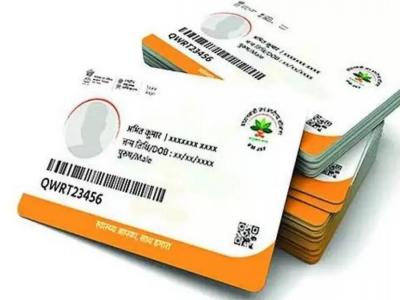Ayushman Bharat Health Card Set to Be Available on Google Wallet Starting 2025
By Lokmat English Desk | Updated: October 4, 2024 17:24 IST2024-10-04T17:24:33+5:302024-10-04T17:24:56+5:30
Starting in 2025, Ayushman Bharat health ID cards will be accessible on Google Wallet, as announced by the company. ...

Ayushman Bharat Health Card Set to Be Available on Google Wallet Starting 2025
Starting in 2025, Ayushman Bharat health ID cards will be accessible on Google Wallet, as announced by the company. This development comes on the heels of the union government's recent expansion of the Ayushman Bharat Pradhan Mantri Jan Arogya Yojana (AB PM-JAY), which now provides free health coverage to seniors over 70 years of age, regardless of their income.
According to the Google blog post, “As a result, integrations that would have taken up to six months can now be finished and scaled in less than two weeks. Through a partnership with Eka Care, an authorized issuer of the digital health IDs, we will be making the ABHA ID cards available on Google Wallet starting next year," Economic Times reported.
The announcement also noted, “This will enable over 600 million ABHA ID holders to easily access their cards on their smartphones.” With the health ID, individuals can seamlessly share and receive their medical records, including lab results and prescriptions, with partner healthcare organizations nationwide.
Also Read| Bengaluru College Bomb Scare: BIT, BMSCE and MSRIT Receive Threat Mails.
Ayushman Bharat Card on Google Wallet: How It Works
When adding or using their ABHA Health ID in Google Wallet, users must authenticate their devices using a fingerprint, PIN, or passcode to safeguard sensitive health information.
What Is the Ayushman Bharat Digital Mission (ABDM)?
The Government of India has launched the Ayushman Bharat Digital Mission (ABDM) to promote the digitization of healthcare and establish an open, interoperable digital health ecosystem across the country. The mission aims to achieve this by setting common health data standards and developing essential modules, such as a registry of health facilities and healthcare professionals, necessary for interoperability.